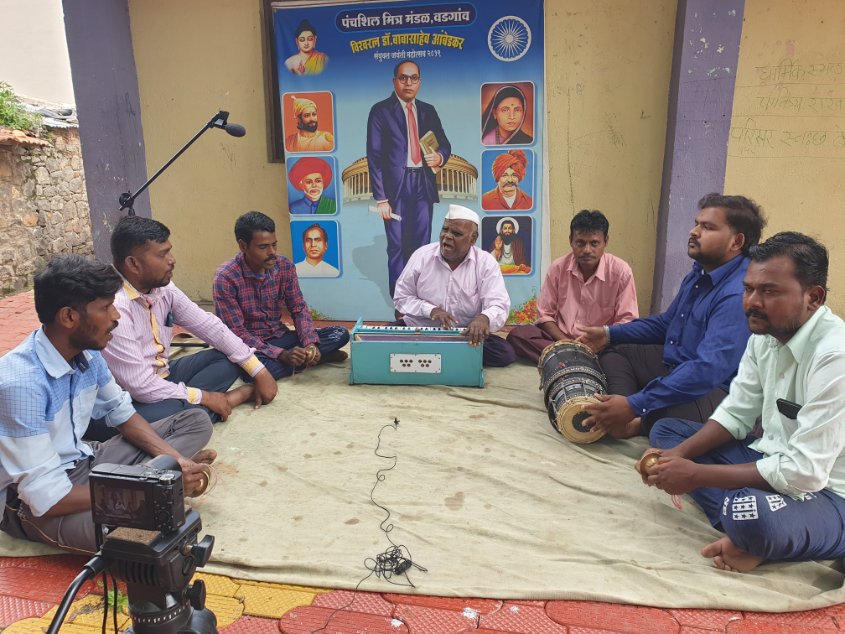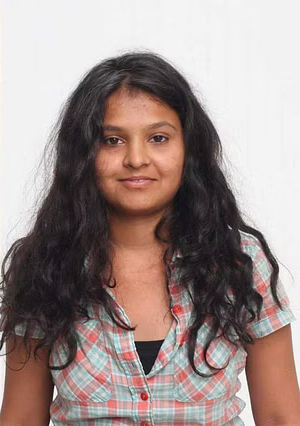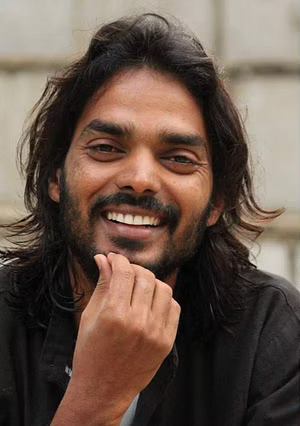Project Description:
The Ambedkar Digital Bookmobile is a project conceived by public intervention artist, performer and educator Smita Rajmane and documentary filmmaker Somnath Waghmare. It aims to collect Maharashtra’s long history of social reform, accessing 400-500 year-old traditions of song-writing, performances and poetry against caste-based exploitation and untouchability. It is a history that speaks with multiple voices ranging from Saint Tukaram, Saint Chokhamela and Vamandada Karadk to contemporary, popular singers like Adarsh Shinde. The project seeks to document singers and artists who mostly hail from the rural interiors and are not very well known around the urban spaces of Maharashtra. The singers have been singing anti-caste songs for many decades. Every year they perform at different gatherings such as the one held at Chaityabhumi Dadar on the occasion of Ambedkar’s death anniversary observed as Mahaparinirvan Din on the 6th of December, Deekshabhoomi Nagpur on the 14th of October, Bhima Koregaon on the 1st of January, Mahad on the 20th of March etc.


Founding members :
Smita Urmila Rajmane


Somnath Waghmare


He continues to explore and document the histories of Dalit people in India. His current film project, ‘Chaityabhumi’ is about a location in Mumbai, the capital of Maharashtra, where once again lakhs of people come to pay their respects twice a year to Dr. B.R. Ambedkar, the founding father of India’s Constitution and a significant human rights leader whose writings and work against India’s discriminatory caste system resonates and inspires even today. Another ongoing project is ‘Gail and Bharat’, a documentary biopic of Dr. Gail Omvedt and Dr. Bharat Patankar, a noted activist and academic couple in Maharashtra.
The core of Somnath’s work is in the documentation of political , cultural and social assertion by Indian historical marginal community. In both his research and films, he is interested in the caste and cultural politics of state. Somnath has been interviewed by the BBC Marathi and BBC Hindi, Vice, The Indian Express and Times of India, Mumbai Mirror, Deccan Herald, The News Minute, Mint Lounge, SilverscreenIndia about his work. He has also given several talks on caste in cinema, including at the Satyajit Ray Film and Television Institute in Kolkata, as well as webinars organised by human rights organisations, community initiatives and universities. Somnath and Smita Rajmane received a grant Foundation for Indian Contemporary Art for their Dalit singers song documentation project ‘The Ambedkar Age Digital Bookmobile.
